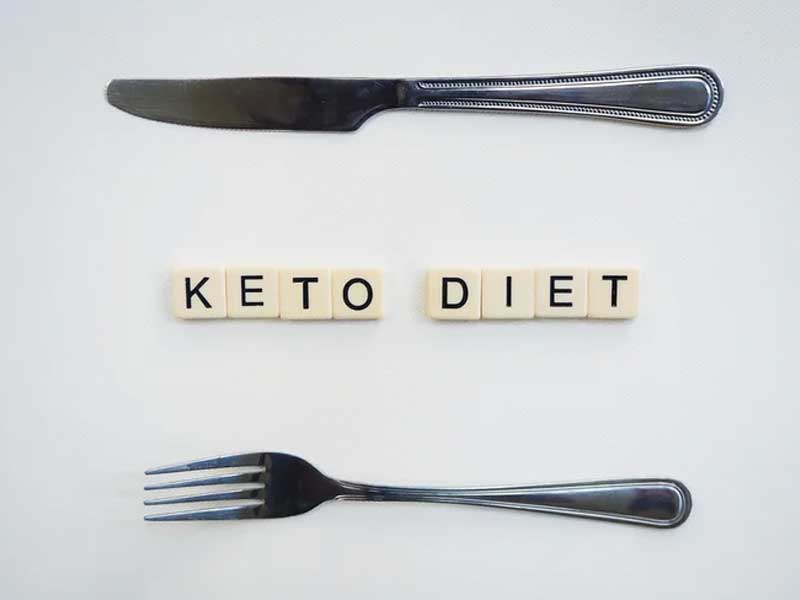Keto Diet Pros and Cons in 2022
There are many benefits of following a Keto diet, but it also has many risks. Find the Keto Diet Pros and Cons in this article. The high-fat, low-carb diet can increase your risk of liver disease, kidney stones, and micronutrient deficiencies. Moreover, there isn’t enough research on its long-term health effects. While this diet may help you lose those stubborn pounds, it could have long-term, irreversible effects.

Low-carb diets
Low-carb keto diets are becoming popular again. However, not everyone can follow these diets. They can lead to several problems, and not all of them are good for your health. Among these problems is constipation. Additionally, this diet can cause bad breath and headache. It also makes you feel very tired. The good news is that there are many healthy options for low-carb diets.
A low-carb diet is generally higher in protein than the typical diet. Higher protein diets can improve metabolic health, promote muscle maintenance, and improve satiety. Generally, low-carb diets limit starchy vegetables, grains, and legumes. However, some low-carb diet plans allow nuts and small amounts of fruits.
A low-carb keto diet is also good for the prevention of diabetes and the reversal of type 2 diabetes. Current recommendations for type II diabetes patients suggest consuming no more than 225 grams of carbohydrates per day. However, many doctors are calling for a change in this recommendation. Many experts say that the CDC recommendation is counterproductive and traps patients in a cycle of diabetes medication. A person with diabetes needs carbohydrates to prevent hypoglycemia and release insulin.
While low-carb diets are gaining popularity, many studies show increased mortality. Epidemiological studies and meta-analyses have shown that people who consume less than 40 grams of carbs are at higher risk for mortality. In addition, the PURE study, which involved over 135,000 participants, found a direct relationship between higher carbohydrate intake and increased mortality. Another prospective cohort study showed that healthy low-carb diets were associated with lower mortality than unhealthy ones.
In addition to avoiding processed meat, low-carb keto diets should include non-starchy vegetables. These are packed with vitamin C and other minerals. They also help protect your body from free radicals. You should eat a variety of vegetables, as they can help you to lose weight.
If you want to follow a low-carb diet, you can start by reducing your carbs slowly. This will minimize any side effects and will help you to lose weight. Some people experience short-term symptoms of the low-carb diet, but these are minor and can be managed. Most people will see some weight loss in a few days. However, this weight loss may be mostly water.
Increased risk of heart disease
Ketogenic diets are gaining popularity for weight loss, but they also increase cholesterol levels. The reason is that they cut out carbohydrates and other dietary fiber that protect the heart. A low-carb diet will increase cholesterol levels, and people with a family history of heart disease should talk to their doctor before beginning this diet. Also, people with kidney and liver problems should avoid following a ketogenic diet.
Despite the increased risks of heart disease, there are many proven strategies that can protect your heart. Managing your cholesterol, controlling blood pressure, and engaging in regular exercise are just some of the ways to lower your risk. While a ketogenic diet isn’t right for everyone, there are certain foods that are high in healthy fats and can improve your health.
A ketogenic diet is made up of 75 percent fat, 20 percent protein, and five percent carbohydrates. While this diet includes plenty of healthy meats and cheese, you’ll have to avoid processed foods and soda. A ketogenic diet makes the body burn stored fat to produce energy, which causes a process called ketosis. Ketone bodies are then released throughout the body and are used as energy.
Another concern is that the type of fat consumed on the ketogenic diet may contribute to heart disease. While existing studies have controlled the type of fat consumed, many keto diets contain large amounts of saturated fat, which is associated with an increased risk of heart disease and high lipid levels. Some studies have also found that eating a ketogenic diet for longer periods of time can lead to stiffening of arteries.
The results of the AHA review committee’s recent study are a disappointment for the people on a ketogenic diet. They failed to take into account the substantial body of published research that shows that a well-formulated ketogenic diet can reduce cholesterol levels. Furthermore, it can reverse type 2 diabetes and reverse metabolic syndrome parameters. A high-carbohydrate diet raises blood LDL levels, which is the ‘bad’ cholesterol.
In the United States, one person dies from heart disease every minute. Unfortunately, most people do not have an understanding of the risk they face from cardiovascular disease. Some of these people may be unaware that they are genetically predisposed to developing heart disease.

Increased risk of seizures
Keto diet is an extremely low-carb diet that is high in fats and low in carbohydrates. Typically, most people get their energy from carbohydrates, which are broken down into sugar and used by cells in the body. Keto diet encourages the body to enter a state of ketosis, where the body burns fat for energy instead of sugar. The keto diet requires that the diet be high in fatty foods, such as butter and cream.
However, it is not clear whether the keto diet can help people with epilepsy. One study aims to assess long-term efficacy of the diet. Researchers enrolled 29 children with refractory epilepsy and followed them for at least two years. At the end of the study, 18 of them had stopped the ketogenic diet and 11 were still on it. The researchers evaluated seizure rates, side effects, and blood glucose levels in these children. They found that the majority of subjects reduced their seizures within three months, with the lowest rates at six and nine months.
The keto diet has been used to treat epilepsy since the 1920s. Its mechanism of action is not completely understood, but it alters the excitability of the brain and reduces the tendency to produce seizures. Nevertheless, it has side effects, including low bone density and a greater risk of bone fractures.
There are a number of medications, surgeries, and devices that can help people with epilepsy live seizure-free. A diet based on the keto diet, however, can be helpful for people who have drug-resistant epilepsy. The diet is formulated to force the body to use fat as its primary source of energy.
Increased hunger
The Keto diet is one of the most popular diet plans right now. Its main goal is to burn fat and reduce your weight. The diet plan involves cutting out most carbs from meals. This causes the body to burn fat instead of carbs. Those who follow the Keto diet experience decreased hunger and cravings, and they also lose weight faster.
While the diet has many benefits, the short-term effects can be uncomfortable and debilitating. Some people experience headaches, nausea, constipation, and stomach upset. Moreover, this diet severely restricts your intake of carbohydrates, which may cause micronutrient deficiencies.
On the other hand, it can be bad for the body if you go on the keto diet for too long. Chronic low-grade inflammation can lead to various diseases, such as type 2 diabetes and cardiovascular disease. You can prevent the keto flu by gradually reducing your carb intake.
Some keto diets are high in saturated fat, which can increase the risk of heart disease. The American Heart Association recommends that you limit saturated fat intake. A burger patty contains about seven grams of saturated fat, while one ounce of cheddar cheese contains six grams. Moreover, some studies have found that keto diets increase the risk of all-cause mortality. It is advisable to follow a balanced diet and make sure that you don’t exceed the recommended daily calorie intake.
Although the diet may increase your weight, it can be beneficial for your health and well-being. However, it is important to consult a physician or nutritionist to follow it properly. If you’re pregnant or have any health problems, it is best to consult a dietitian before starting a keto diet.





